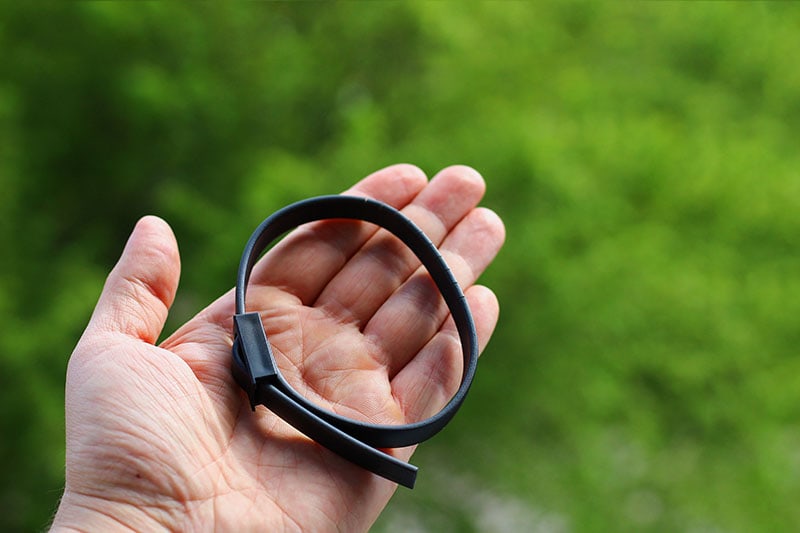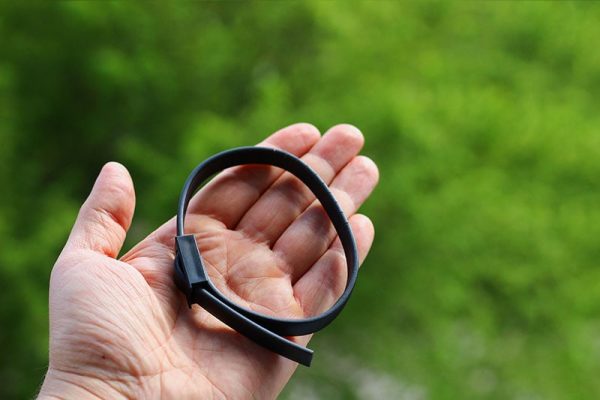Click to Skip Ahead
Fleas are a nightmare for both dogs and their owners, and in the fight against them, a flea collar can be helpful. If you are a pet parent to cats as well, we understand that they may have a resistance to collars, and because of that, you may have an unused flea collar stored away. Could you save a trip to the store and use the cat flea collar on your dog?
Flea products are designed specifically for either cats or dogs and shouldn’t be used interchangeably. While a cat flea collar may not necessarily harm your dog, flea prevention will be minimal.
It is always best to consult your vet when dealing with chemical products and pets.
Are Cat and Dog Flea Collars the Same?
No, cat and dog flea collars are not the same. Flea products for cats are typically smaller in size, have different strengths, and contain different types of medication, making them unsuitable for protecting dogs from fleas.
The ingredients in cat flea products can differ significantly from those in dog flea products and are not as effective in flea protection for dogs.
Typically, cats weigh much less than most dogs, and size is essential when choosing the proper flea treatment. It is always best to talk to your vet about the best methods for fighting fleas.
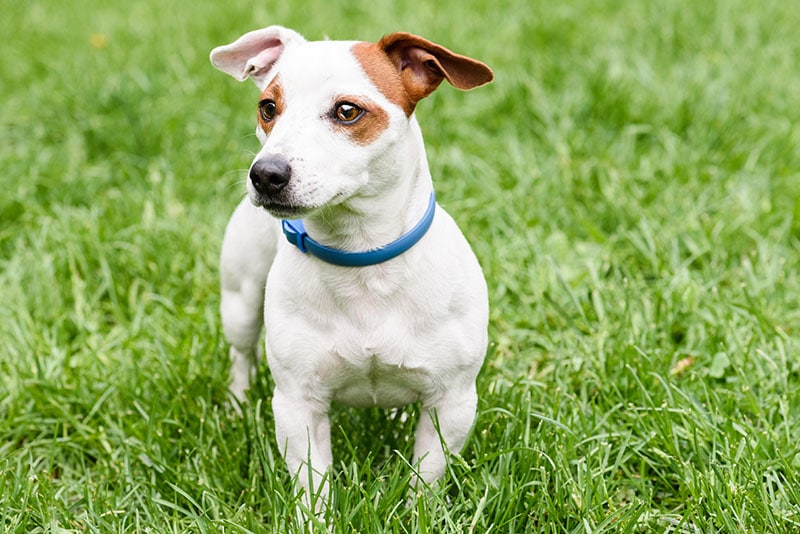
Are Cat Flea Collars Safe for Dogs?
There are some toxicity risks with flea collars, and deciding to use one on your dog is at your own discretion. The well-known flea collar, Soresto, has been linked to over 1500 pet deaths. It works by releasing small amounts of pesticide onto the dog over a period of months.
The pesticide is meant to kill fleas, ticks, and other pests while remaining safe for cats and dogs. However, some of the veterinary community disputed these findings, so it’s up to you to do some research and weigh up the pros and cons.
There is also a risk of allergy or sensitivity to certain chemicals. Cat and dog flea collars contain different chemicals, and if either animal wears a flea collar designed for the other, an allergic reaction may occur.
Naturally, cat flea collars are smaller and may be too small for your dog, presenting a choking hazard.
Keeping your Dog Safe when using a Flea Collar
Flea collars work by gradually emitting an insecticide or gas, which is released just beneath the dog’s skin into the subcutaneous fat. The insecticide will kill the fleas once they have had a blood meal, and the gas will kill fleas on contact.
If you decide to use a flea collar to combat fleas on your dog, there are a few things to consider to keep them safe.
- Avoid using a flea collar on your puppy; they are more susceptible to being harmed by insecticides and chemicals, and their immune systems are still developing.
- Avoid Tetrachlorvinphos. It is a dangerous chemical used in flea products and has caused harm to thousands of pets. It is dangerous to pets and their owners, especially young kids and pregnant women.
- Try to avoid Propoxur. The pesticide propoxur is a neurotoxin, causing vomiting, diarrhea, teary eyes, wheezing, and sweating. Severe poisoning can result in seizures, respiratory paralysis, and even death.
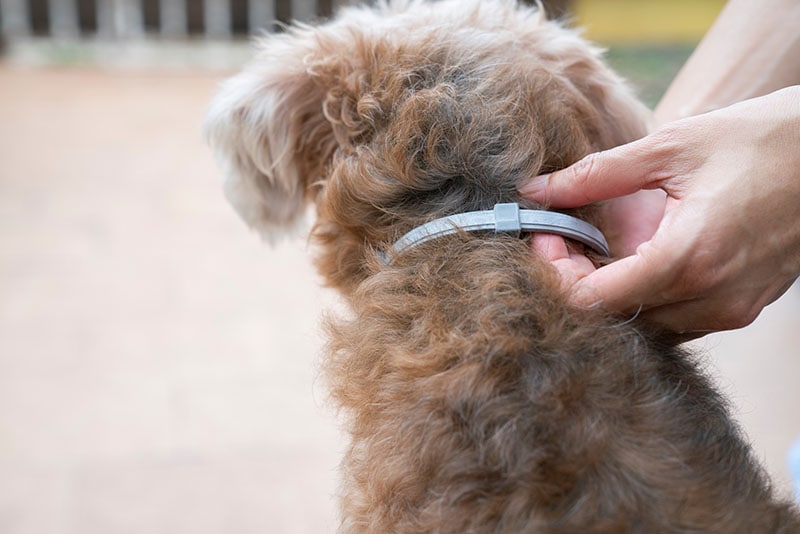
Alternatives to Flea Collars
There are alternatives to using a flea collar, but always consult your veterinarian to determine the best flea prevention method for your dog.
Oral Flea Treatments
Oral treatments can include pills that get rid of adult fleas, as well as prevent flea eggs from hatching. The ingredient of the pill is absorbed into the pet’s blood, which is then transmitted when a flea has a blood meal.
Spot on Treatments
Spot-on treatments target adult fleas. The treatment is applied between the dog’s shoulder blades, where it is slowly absorbed into the bloodstream. When a flea has a blood meal, the chemical enters the flea and kills it. Spot-on treatments can be effective for a month, and it’s crucial that they are applied carefully so that the dogs cannot reach or lick them.
Shampoos, Powders, and Sprays
Flea shampoos can be effective for up to 24 hours and are used to control a heavy flea infestation. Powders and sprays typically last longer than shampoos and will fight off adult fleas while preventing the larvae and eggs from becoming adults.
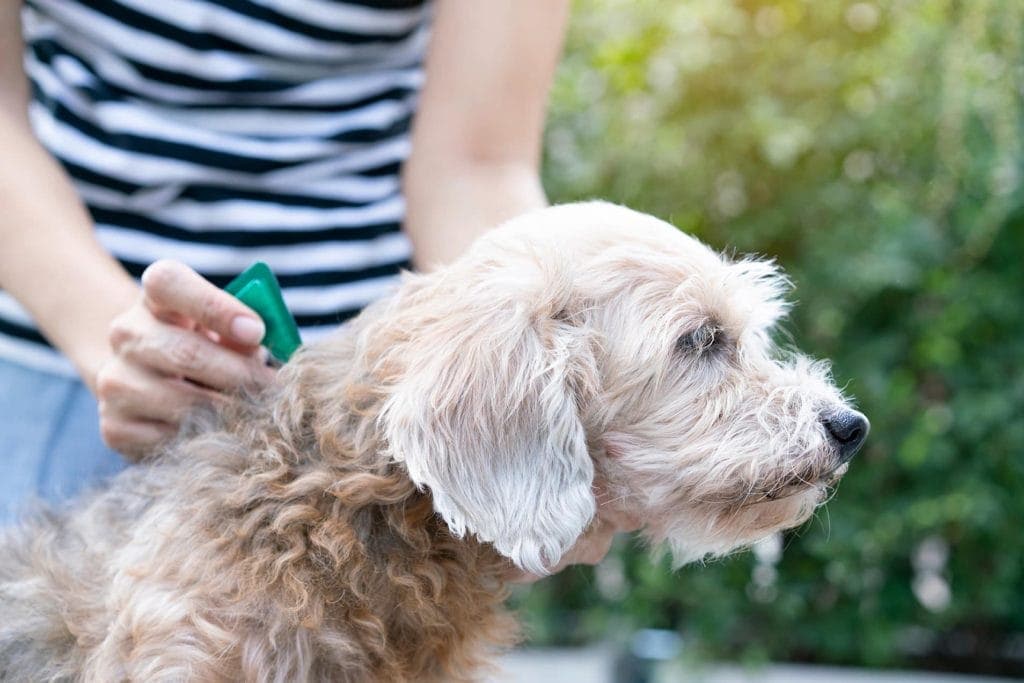
Tips for Flea Prevention
No matter which method you choose to use in order to battle fleas, consider these tips.
- Wash your linen regularly, vacuum, and bathe your pet regularly, using a flea comb to catch fleas and drown them.
- Use flea prevention methods year-round.
- If you have more than one dog, then treat them at the same time.
- Don’t use more than one product at a time; the toxicity levels will be too much for your dog.
- Always follow the product instructions. The product will work more effectively and safely.
- Keep your grass short. It is one of the favorite hiding places for fleas
- If you think your dog has had a reaction, contact your vet immediately.
Conclusion
Whether they are formulated for a cat or a dog, flea collars contain powerful chemicals that are successful in killing fleas. It is recommended that cat and dog flea collars should not be used interchangeably. If you put a cat flea collar on your dog, it will most likely not be strong enough for flea prevention, and your dog could have a potential allergy or sensitivity to it.
Furthermore, it can be too small for your dog, resulting in a potential choking hazard. The fight against fleas is part of being a responsible dog owner, but you should always consult with your vet for the best advice.
Featured Image Credit: Gagarin Iurii, Shutterstock

